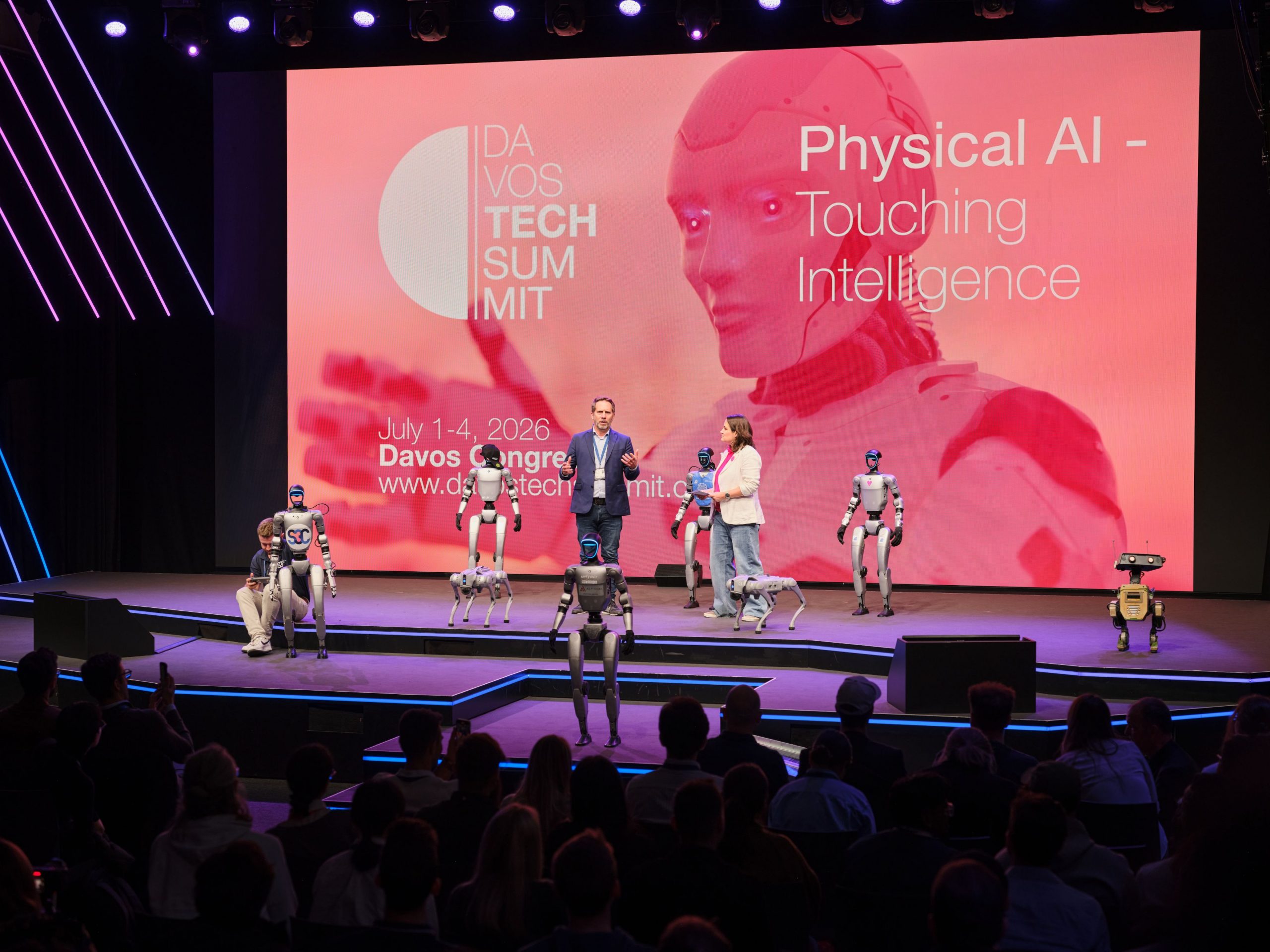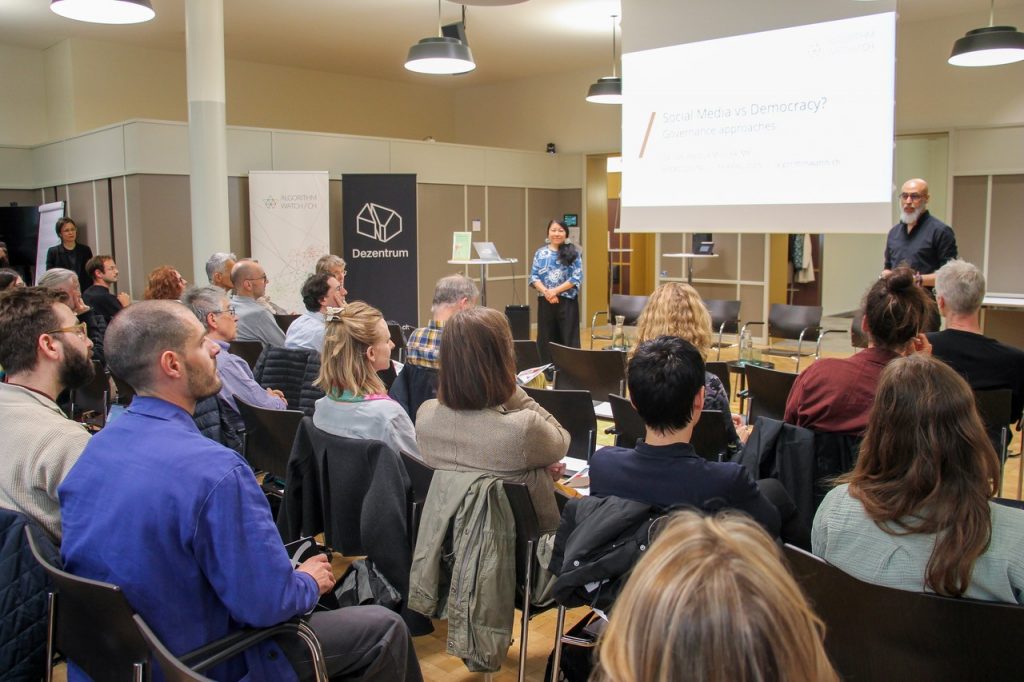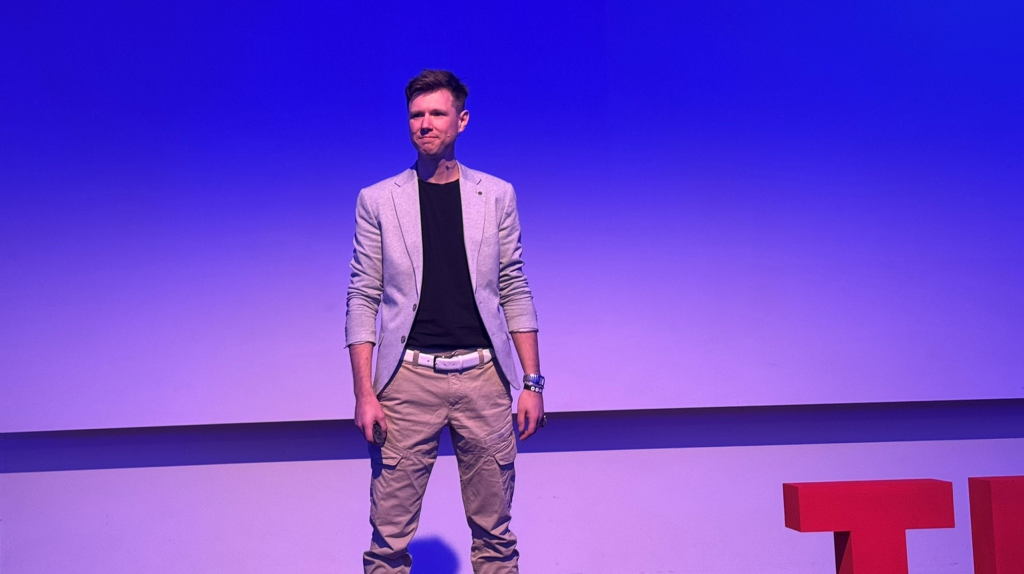On 2 October 2025, more than 2,000 participants gathered in Oerlikon to explore how AI is shaping business, science, and society. ETH AI Center, ZHAW and the University of Zurich co-organised the event. Read on to catch a glimpse of ZHAW’s sessions.
Photo Credit: Bo Yann
The summit’s program featured insightful sessions from different disciplines. Among them were experts from the ZHAW School of Applied Linguistics, School of Engineering, School of Management and Law and School of Life Sciences and Facility Management. In the afternoon, the humanoid robot KAI and other robots took center stage, and Tilman Eberle (ZHAW digital) announced the “Davos Tech Summit” that will take place July 1-4, 2026.
AI + Language
Alice Delorme Benites, professor at ZHAW Applied Linguistics, led the main stage discussion on “Next-Gen Narratives: How LLMs Are Rewriting Language & Communication Careers”. Together with Samuel Läubli (Supertext), David Fröhlich (capito.ai), and Henrik Dudek Povlsen (Stibo DX), she had a conversation about language work, communication workflows, and job opportunities in times of AI. LinkedIn co-founder Reid Hoffman once said that “AI will reshape every industry”, and the language industry is already being transformed. The speakers agreed that
- AI only wins when paired with human expertise
- language technology is overhyped short-term but underhyped long-term
- and successful adoption is as much about people as tech.
“The bar for entry roles is rising – so let’s double down on upskilling and build workflows where humans and AI do their best work”. – Alice Delorme Benites

AI + Smart Manufacturing
The track session “Beyond Automation: AI-supported Optimization for Smart Manufacturing” organised by Prof. Alisa Rupenyan was fully booked. It featured a lively panel discussion and many questions from the audience. The discussion brought together research and industry leaders, including Dr. Efe Balta (inspire AG), Dr. Majid Nabavi (Oerlikon Digital Hub), Michael Schupp (Belimo Automation), and Prof. Dr. Alisa Rupenyan (ZHAW Centre for AI). The main takeaways were that integrating domain knowledge and physics is crucial, LLMs are not everything, and small models are needed for deployment in the field.
AI + Financial Services
The session on “AI in Financial Services & Beyond” attracted strong interest. In Part I, the speakers examined current trends and developments in the sector, with a particular focus on Switzerland. Dr. Patrick Hauf highlighted the factors driving AI adoption in financial services, emphasizing two key points:
- Efficiency, accessibility, and affordability – AI technologies are becoming increasingly effective and cost-efficient, opening the door to new applications, including the use of smaller, purpose-built models.
- Responsible AI and evaluation frameworks – advances in these areas are fostering trust and accelerating adoption across the industry.
This was followed by presentations from Christian Diethelm (UBS), Claudia Schulz (Thomson Reuters), and Axel Pohl (LLamify), who discussed AI adoption, the need for human expertise, and the importance of tailoring agentic systems to context.
In Part II, chaired by Dr. Tomasz Orpiszewski, the spotlight was on real-world applications of AI. Three compelling use cases showcased how cutting-edge research and technology are translating into practice:
- AI for ESG risk prediction: Dr. Tomasz Orpiszewski (ZHAW), in collaboration with RepRisk AG, shared research on predicting ESG incidents at both company and country dimensions, combining NLP with geospatial techniques.
- Geospatial AI for business: Isabelle Wittmann (IBM Research) introduced TerraMind, a geospatial AI foundation model. She demonstrated how remote sensing data can address practical business challenges.
- AI in Finance: Srividhya Padmanabhan (LEND.ch) and Dr. Marc Weibel (ZHAW) presented their work on peer-to-peer lending. They highlighted how Retrieval-Augmented Generation (RAG) can streamline customer onboarding, enhance credit scoring, and improve user experience.
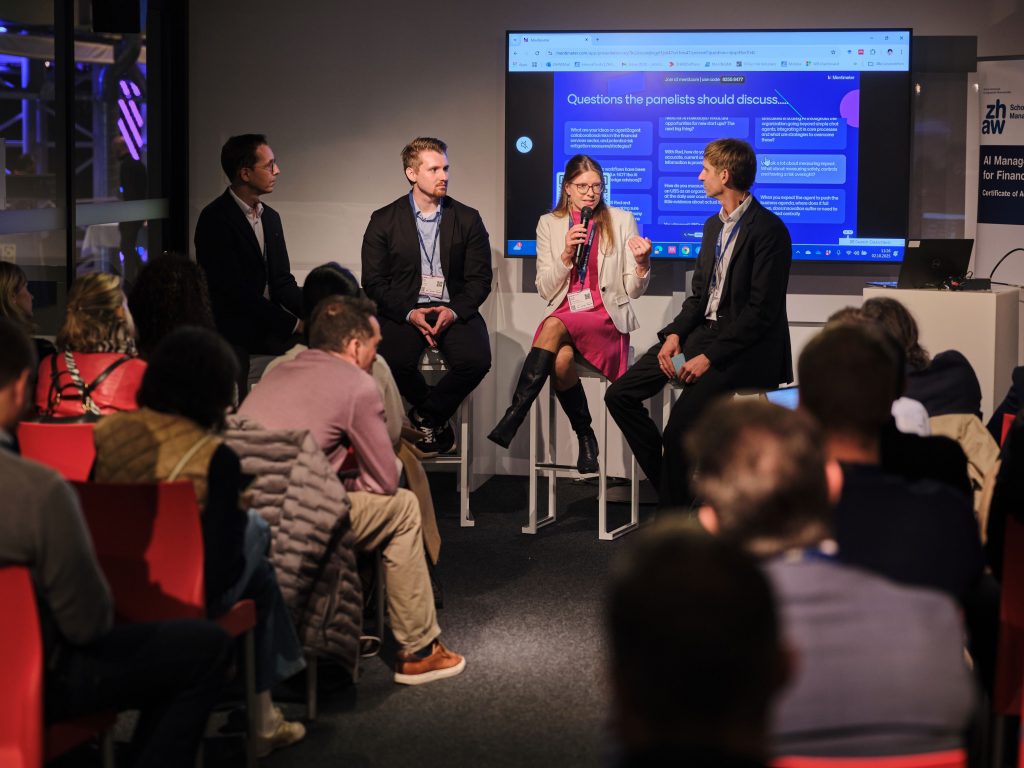
Physical AI + Care
The workshop “Physical AI in care: Robotics at the edge of social intelligence” was led by an interdisciplinary group consisting of Prof. Dr. Yulia Sandamirskaya, Theresa Schmiedel and Dr. Nicole Gerber. They brought together technology developers, academic researchers and care practitioners to explore the promises and pitfalls of robotics in care. The panelists included Andrey Dashenko (NEURA Robotics), Friederike Eyssel (University of Bielefeld), Michael Früh (F&P Robotics), Pascal Kaufmann (MindFire, Lab42, Alpine AI) and Katrin Lohan (OST School of Technology). They concluded that we need to be brave and find investors in both research- and practice-oriented development of useful and human-centered robotics.
AI + Interaction
Throughout the day, the ZHAW booth was buzzing with conversations about the future of AI and robotics. Visitors had the opportunity to chat with experts from various departments about AI applications, physical AI, and neuromorphic computing. Attendees could participate in an interactive experience: taking a Polaroid with the humanoid robot KAI, pondering the possibility of humanoid friendships, enjoying a drink from the robot bar, and engaging with a robot arm art piece showcased at this year’s World Expo in Japan.
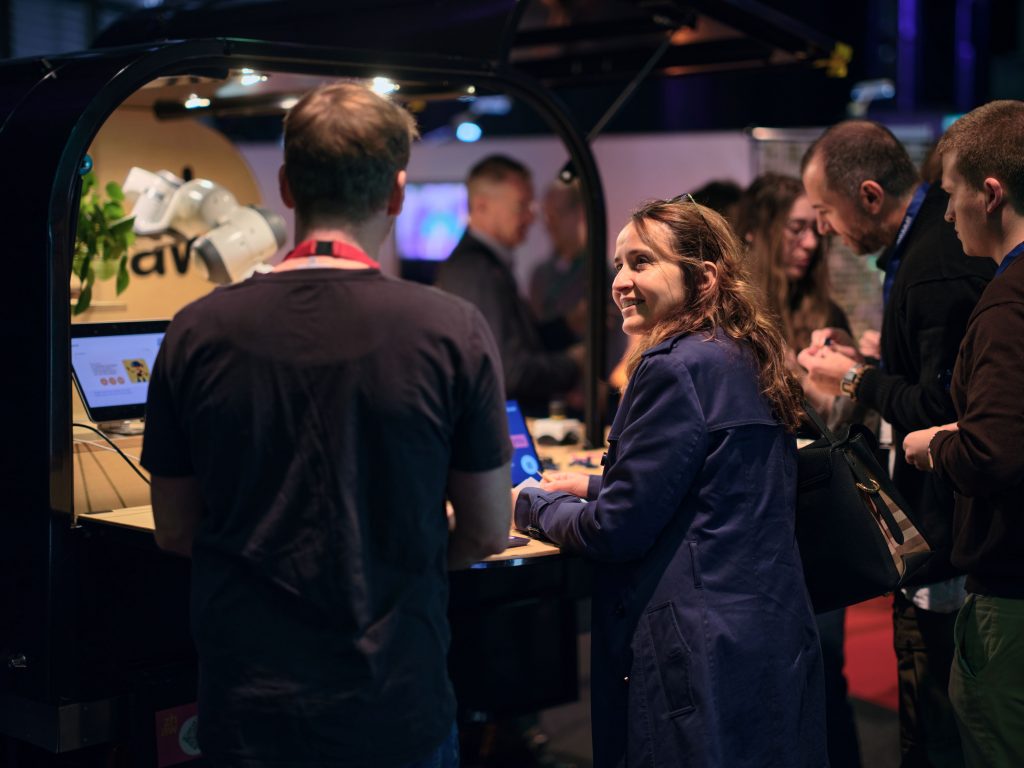
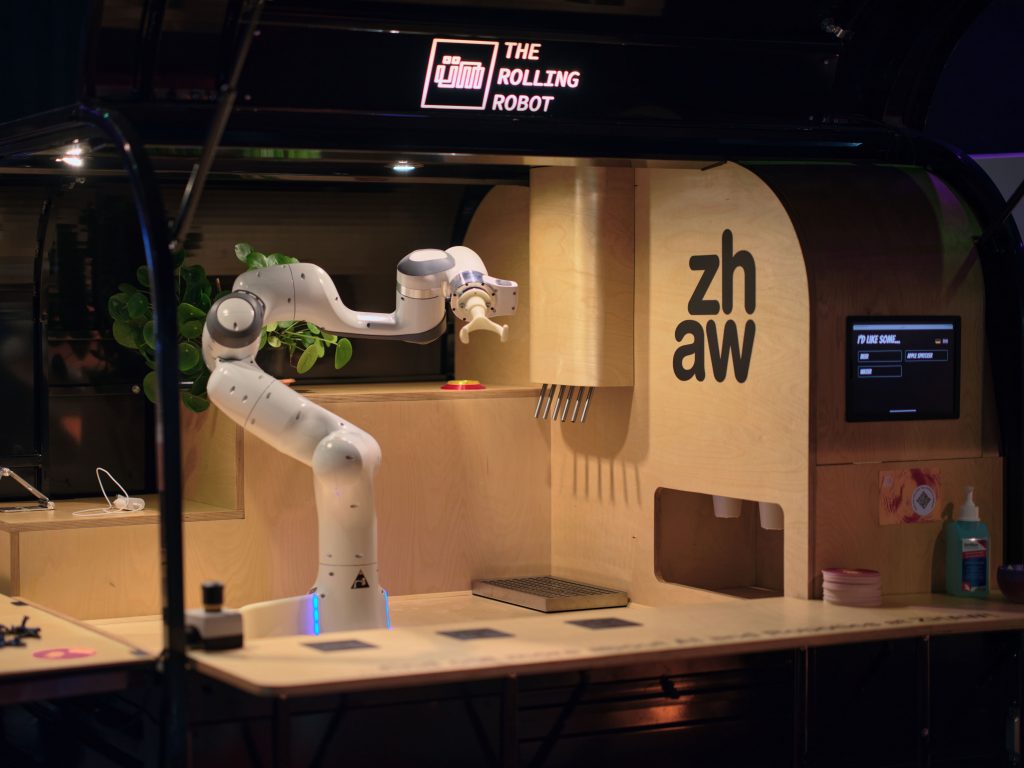
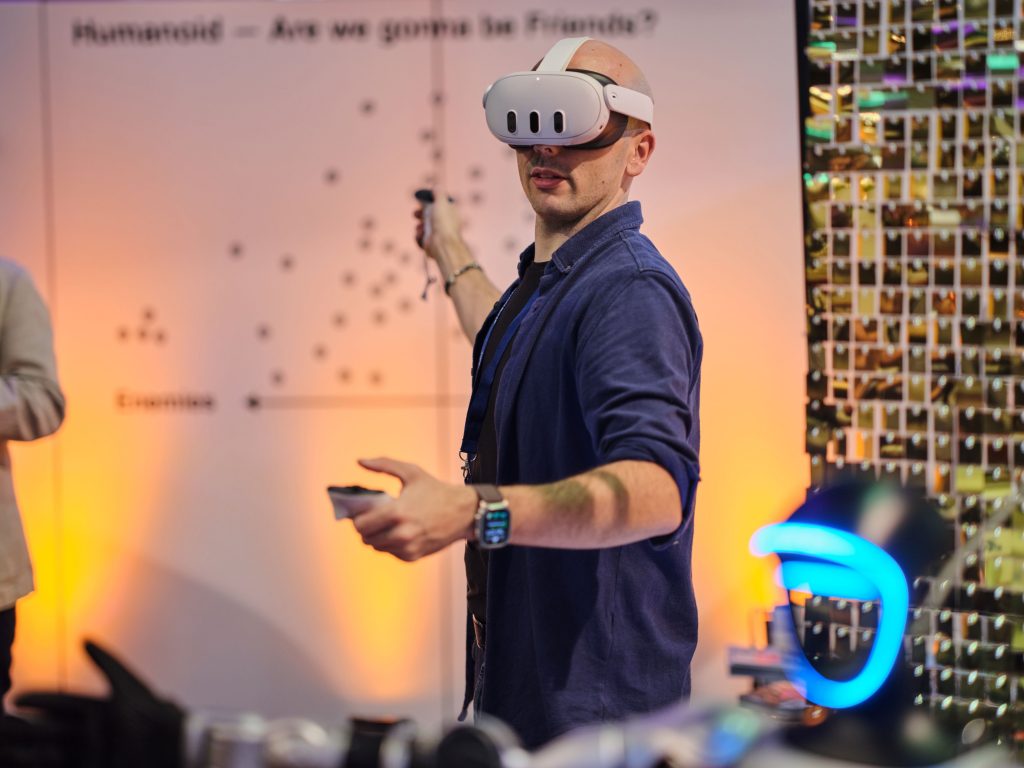
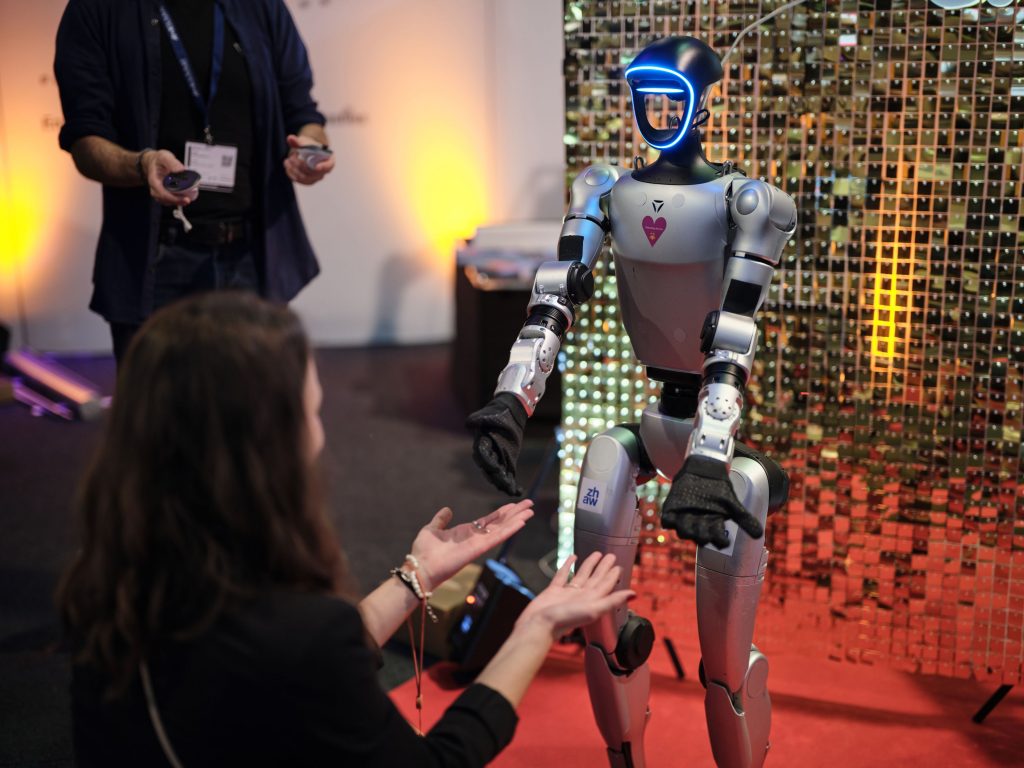
More information
- AI+X Summit
- DAVOS TECH SUMMIT: Physical AI – Touching Intelligence
- Video recap on LinkedIn (ZHAW digital)
